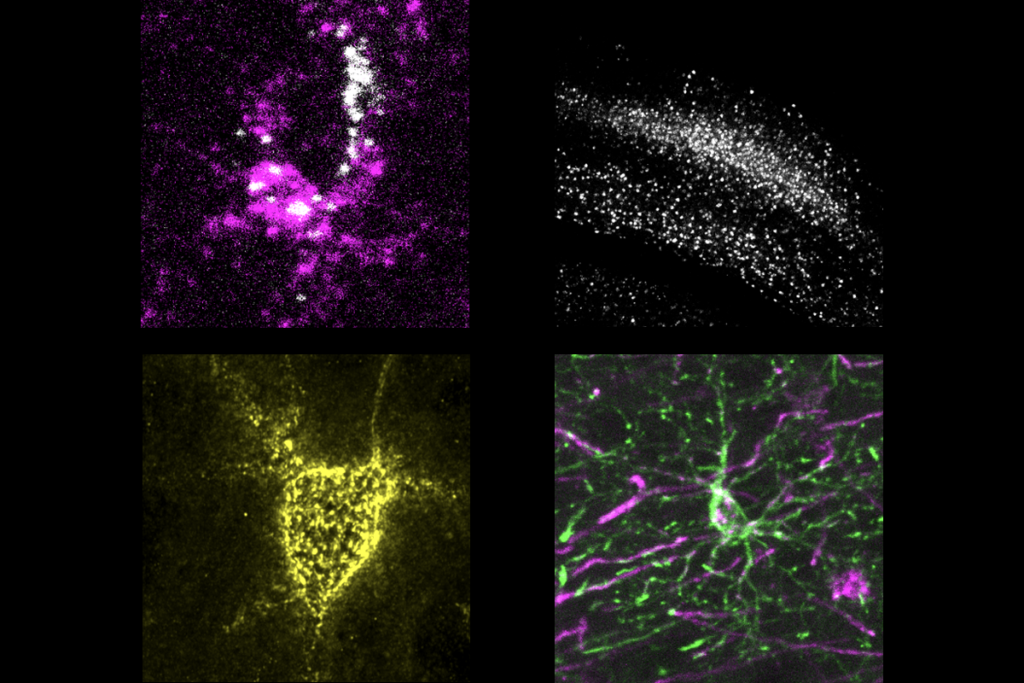Ready or not, here come genetic tests for autism
Late in June, an announcement appeared on the website of GeneDx, a genetic testing company based in Gaithersburg, Maryland. It was highlighted in red with a single word: “new”.
Late in June, an announcement appeared on the website of GeneDx, a genetic testing company based in Gaithersburg, Maryland. It was highlighted in red with a single word: “new”.
“As of June 20, 2008 GeneDx offers Tiered Testing Panels for Individuals with Autism [and] Autism Spectrum Disorders,” it proclaimed.
An accompanying information sheet explained that, for fees ranging from $1600 to more than $6,000, the company is offering a battery of genetic tests designed to detect autism-associated genetic changes.
The tests aim to catch the likeliest culprits early in the process, by tailoring the kind and order of tests to the child, whether it is a boy with large head size, a girl with a small head circumference, or a child with so-called ‘syndromicʼ autism, meaning that it is associated with another disease such as Rett syndrome.
Unlike its competitors, GeneDxʼs package includes both a test that can pick up the deletion or insertion of large chunks of DNA ― so-called copy number variations (CNV) ― that in a spate of recent studies have been associated with autism, and letter-by-letter sequencing of well-known risk genes such as PTEN and MeCP2.
“I donʼt know of any other place positioned the way we are to have something like this put together quickly and offer it,” says Swaroop Aradhya, director of the companyʼs Clinical Microarray Services.
GeneDx is only one of at least a dozen companies and academic centers developing tests for genetic abnormalities associated with autism. Unlike the direct-to-consumer marketers of some genetic tests, the companies interviewed for this article all say they only provide tests on the order of a familyʼs physician or clinical geneticist.
Supply and demand:
Genetic tests “are absolutely ready for prime time,” says Arthur Beaudet, chair of molecular and human genetics at Baylor College of Medicine in Houston, Texas. “This kind of testing in my opinion is the biggest positive benefit for medicine so far to come out of the Human Genome Project ― and autism has been one of the biggest beneficiaries.”
Beaudetʼs department has since 2004 offered tests that detect autism-related CNVs. As autismʼs public profile has grown, he says, so has the demand.
“We probably did as many tests in the 12 months that ended in February as we did in our first three years of testing combined,” he says.
In February, CombiMatrix Diagnostics of Irvine, California, began offering a $1,200 ‘AT Scan’ to find autism-related deletions and duplications at 40 key places on the genome ― including one at chromosome 16, identified earlier this year.
The test also detects chromosomal changes associated with more than 125 congenital disorders, such as DiGeorge syndrome and Williams syndrome, that are characterized by autism-like symptoms.
Virtually all the new tests rely on array Comparative Genomic Hybridization, a technique that is revolutionizing genetic testing.
If the entire genome were a multi-volume encyclopedia, the technique essentially allows it to be cut into individual pages that one could imagine laid out on a football field and photographed by satellite, allowing the detection of missing or duplicated pages, but not the tiny typographical errors that only base-by-base sequencing can pick up.
“For all of the players doing the arrays, this is a very rapidly growing activity, because itʼs rapidly taking over the karyotype business,” says Beaudet.
Signature Genomic Laboratories of Spokane, Washington, was the earliest commercial player in this technique. Since 2003, the company has used the technique to scan genomes for CNVs related to autism and other diseases. Until recently, it had not, however, promoted itself specifically for autism.
“Some of the labs who have been trying to elbow their way into this market have been putting together marketing packages saying ‘We have the autism test, [we] test for all the genes that cause autism,” says Bassem Bejjani, Signatureʼs chief medical officer. “This may be harmful to parents. I donʼt want to give false hope.”
Still, when the chromosome 16 findings were published in January in the New England Journal of Medicine, the company rushed out a press release that is prominently tagged on its home page, noting that its flagship microarray detects the newly discovered CNV.
Great expectations:
Some experts say they do worry that the gold rush of new genetic information wonʼt always live up to parentsʼ expectations.
“The microarray companies like CombiMatrix and Signature, their tests are good, thereʼs no question,” says Stephen Scherer, director of The Centre for Applied Genomics at the Hospital for Sick Children in Toronto and the sole permanent member CombiMatrix Diagnosticsʼ scientific advisory board. “[But] figuring out what the information means is really the challenge,” he says.
Others are even more cautious ― and critical ― about the usefulness of these tests.
“The likelihood that any test will be helpful for any family affected by autism is small, and the interpretation actually quite difficult,” says Stan Nelson, director of the DNA Microarray Facility at the University of California, Los Angeles, and an advisor for 23andMe, the California-based DNA testing company.
Nelson notes that some people carry autism-related genetic abnormalities without having the disease.
Despite the uncertainty about interpreting the tests, however, some families say they can be useful.
When the Bliss family of Houston took the tests at Baylor, they discovered that their 10-year-old son, who had been diagnosed with autism, carries a deletion at 22q13 with a break point in the middle of the SHANK3 gene. Neither parent has that deletion.
Apart from pinpointing the cause of her sonʼs autism, says the mother, Geraldine Bliss, the results directed the family to a network of others with the same genetic condition. It also allowed them to dismiss unproven treatments such as gluten-free diets and chelation therapy.
“I immediately thought: ‘I can rule those out, because we understand the cause of his autism,’” Bliss says. “I don’t have to feel guilty Iʼm not pursuing all these other therapies.”
In the meantime, there are more tests in the pipeline.
France-based IntegraGen is developing a test tailored to siblings of children with autism. A clinical trial of more than 500 children with autism completed last year suggests the test may be clinically useful, according to Robert Gottlieb, the companyʼs North America chief executive.
The company plans to present the results at an American Academy of Pediatrics’ national meeting in October.
Population Diagnostics, based in Long Island, New York, is trying to raise capital to begin marketing another test within 18 months. The company says that the test, whose details are proprietary, will identify genomic changes that are causative by ‘subtractingʼ normal variations.
Recommended reading
Explore more from The Transmitter

Neuro’s ark: How goats can model neurodegeneration



